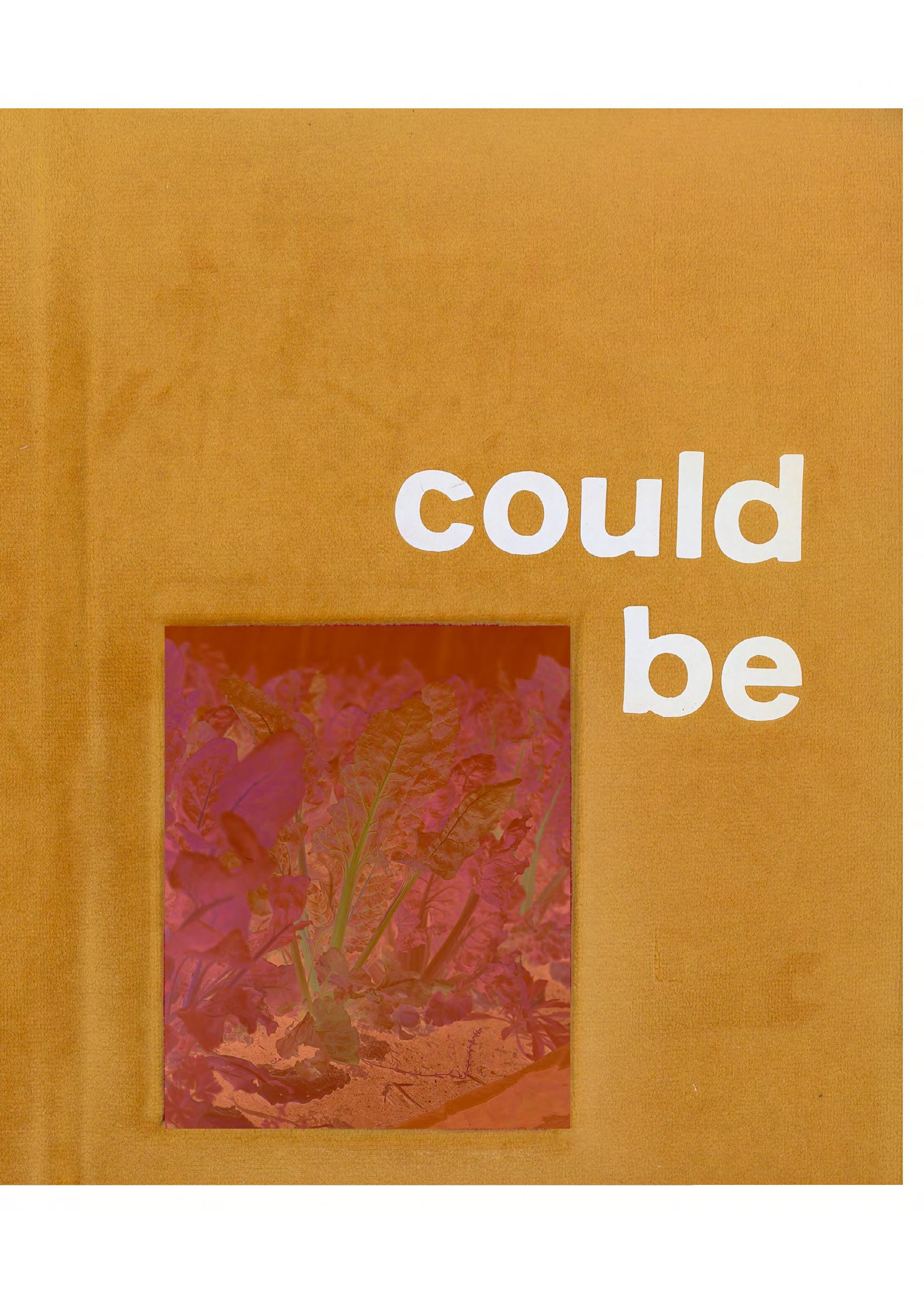
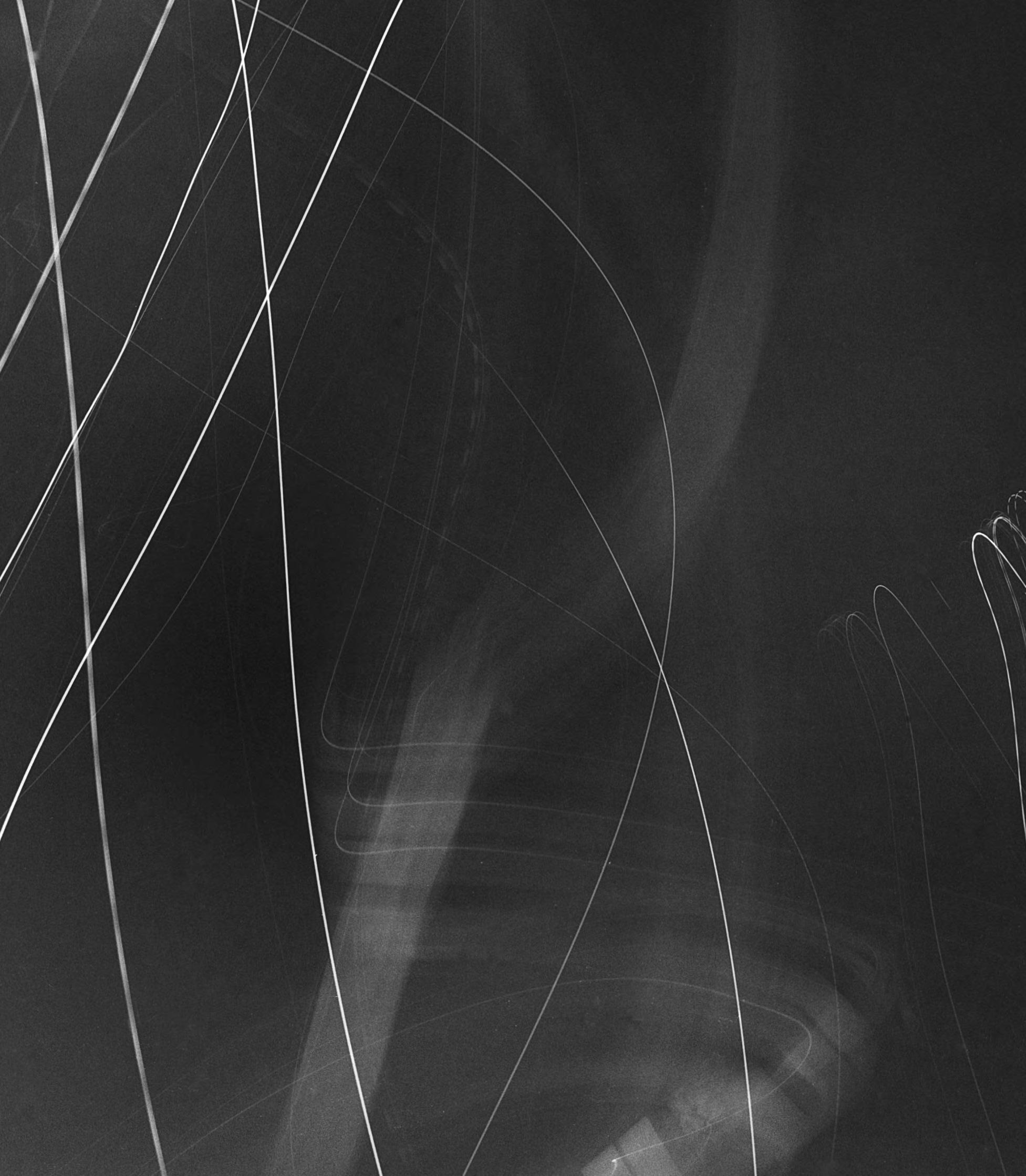




Trigger, capture, frame. The prey, a hunter. Photography takes down and away. With recourse to the spectacular, insanity, obsession, the inappropriate, it feeds but never seems to satiate. Photography stems from curiosity and geometry, stretches to lust and choreography. Photography uses artifices, it is people pleasing and malleable. A weapon guilty of fulfilling its very purpose, photography is human.
Pondering on Jannah’s different shades of green, this book does not escape from all of the above, yet it wishes to remain an offering. Here I sequenced serendipity around a general sense of loss. This book is a detour from absence. The one of my younger brother, Moctar, whose image is not to be found within these pages.
I remember the deafening silence following the news of his hospitalisation. One phone call, filled with the same amount of hope and doubt. Time tricked us. I remember the sound of the machines connected to his brain and his heart, how they rung like a metronome while he spent his last days in bed. I remember the floor of this grim hospital in the south of Paris, the laughters from half a dozen duty doctors passing through the hallway, impassible before flesh. How they wounded the necessary quiet. I remember that my brother shed a tear when I begged him
to stay alive, apologized for all my wrongs. I remember feeling his presence, atuned to his spirit, as he couldn’t reply, nor see us. We were dimensions apart. Surely the tear was coming from the other world, the one where the sun never sets. Where he was already departed.
Since then I try to catch him in my dreams, I oversleep to delay the awakening. I oversmoke, I overeat, I hide. I lick my wounds and my burden away from the world. My mother does just the same, she runs her business 17 hours of the day to stall unrequited encounters with the void. Passes by the cemetary to clean my brother’s grave with water and soap, arranges flowers and asks him if it is cold down there. She curses time, and God.
We live with a hole in the chest, pouring out disbelief. Left with so much emptiness.
I remember the last time I saw my dad, I brought my camera with me. Several years had passed since we last met. That time he couldn’t speak, but only moaned in anger. I found out about Alzheimer’s slow burning through him.
In front of me was standing this man I resemble so much and know so little about. He used to be so strong, yet here he was, barely able to stand on his feet. In the house he did not finish to build he welcomed me with a smile. The moment begged for a picture, but something prevented me from doing it. I held his hand in silence while half of his mind was gone back to where it came from.
Both my father and my brother’s brains were out before their spirits. Taken away by angels too eager to reconvene with their playmates. Time may be another name for God, it does what it wants, decays vanity, sharpens the soul, bends love.
It is hard to pray, but harder not to. I hallucinate, most days, alone. Convinced that I don’t want anything from this world, not even my youth.
Trigger, capture, frame. Time will strike. Could be the last.



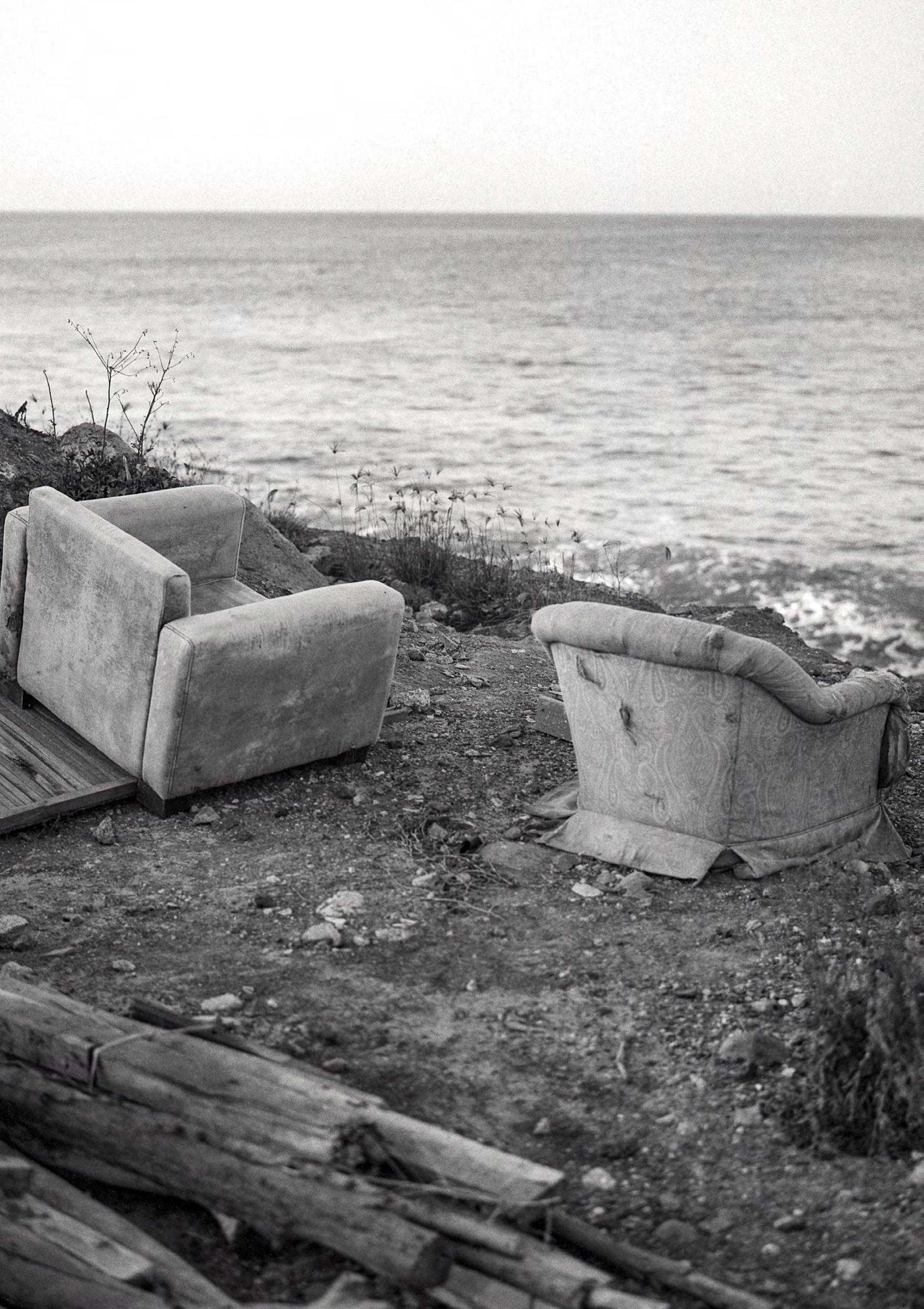



















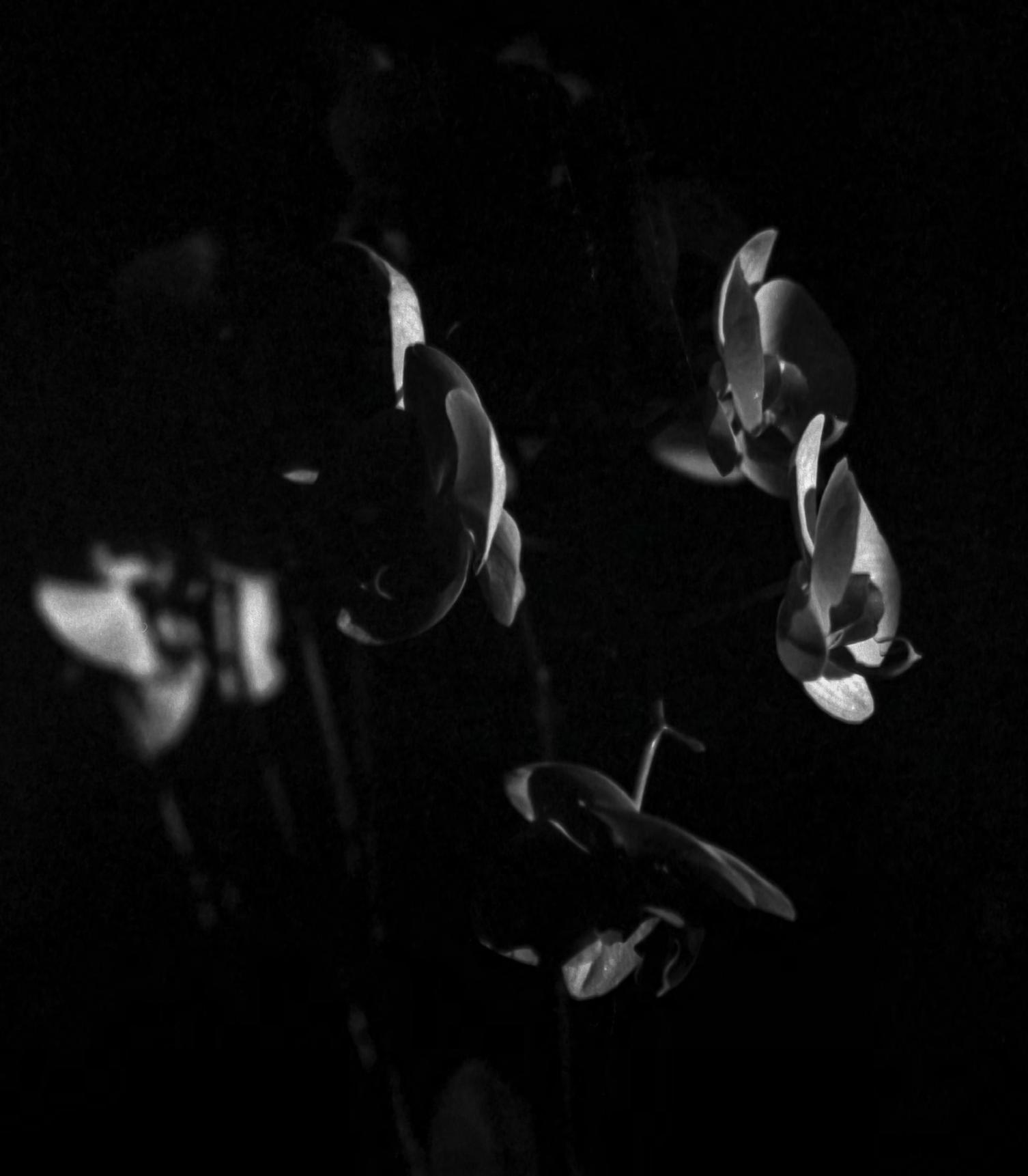








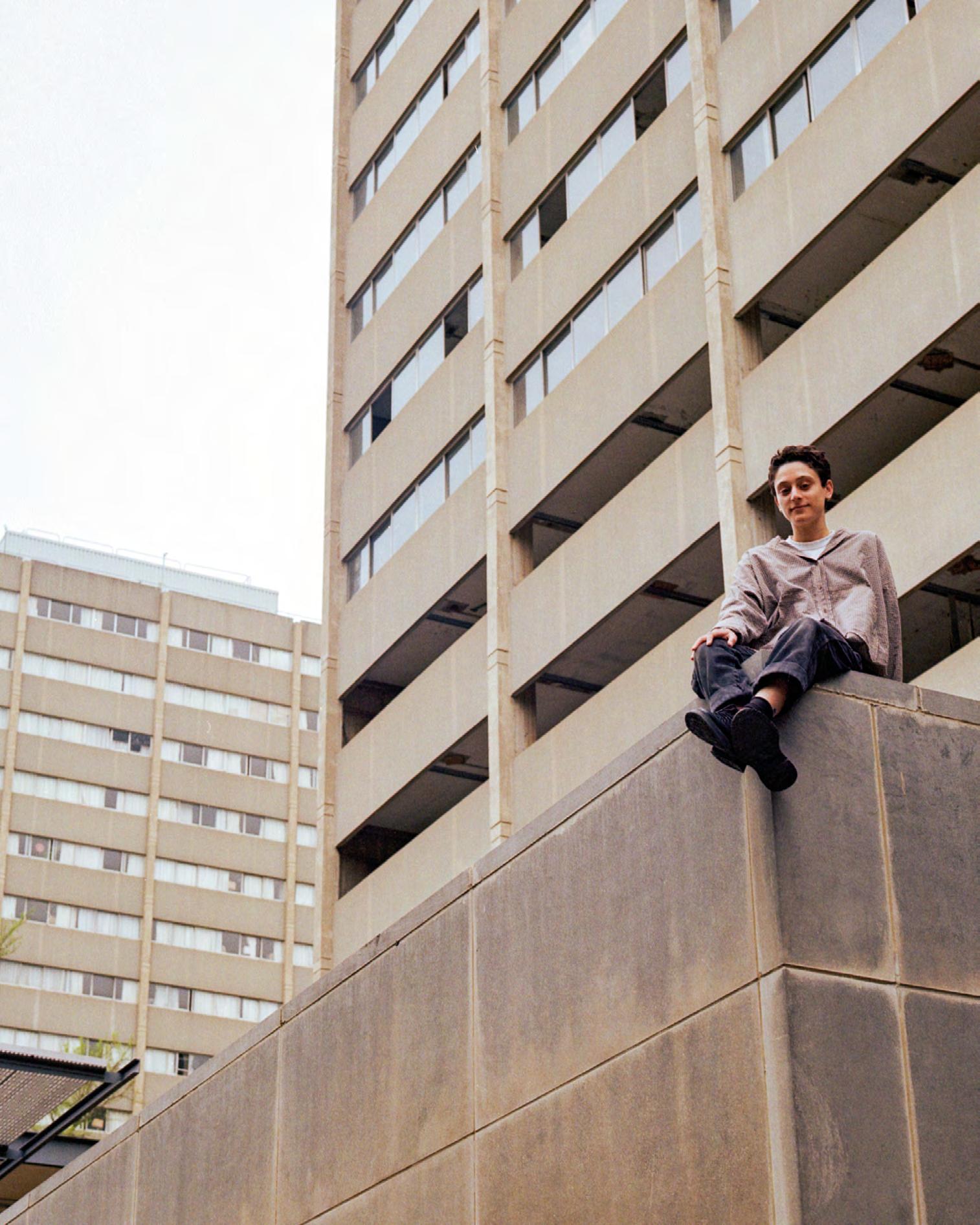








When I expose certain experiences that I go through and describe the people I meet, you often reply, unfazed, that “human beings are just like that.” What are the attributes of being human?
Fatou Faal (My mother): Being altruistic, compassionate, kind, yet also capable of being nosy by starring into other people’s lives instead of their own. Focusing on the negative aspects of life, being egoistical... You can see that we are just like animals who must kill to live. Human beings are very complex. They can be angelic and devilish. Some are willing to sacrifice friendship and marriage for selfish reasons, and others will care for people whom they don’t get to see or talk to often, they never let you down. Change is possible, but seldom happens.
I know that you work every hour of the day, partially to support your entire family, but also to distract yourself. If you were not working as much, what would you do?
FF: I’d do humanitarian work. I’d be with children. I will do it when I retire anyway. I want to help people to get out of the mud. With or without money I’ll do it. You can provide them with love and ed-
ucation at least. One who goes to school is less likely to be abused. They’d know what they get into before signing any piece of paper. The problem is that without education you can’t foresee much opportunities to rise. You need to read and write at least. To help somebody to achieve this is the greatest pride. Not to be recognized, but for them to be able to defend themselves one day.
I can eat what I want, take flights, while others live in trouble. What’s the point? It is easy to divide and blame people for their own situation, but we aren’t all born with the same chance.
When we talk about the ghetto, we want to believe that marginalized people are stupid, but if you are born there, as a foreigner, and all you experience is poverty, violence and delinquency, it’ll be hard for you to get out of the cycle.
There is violence as well and in some cases, little love in rich neighborhoods, but if I was to choose, I’d prefer a secure environment over living in destitution.
We just crowned the new King of England, why don’t we sell what he is wearing on his head and send engineers in Africa to work? People say it is part of the institution, go on then. Decorate, let’s admire that. I find these things to be abject, but there is this thing called free will, to each their
How did the society change since you arrived in France, three decades ago?
FF: It was easier before. I don’t want to sound old-fashioned, but it was better. You could work without papers, now it is impossible. And if you do, people will exploit you. France is not richer than it was back then I believe, but it has become more racist because people are used to hearing the rhetorics that blames foreigners for the country’s difficulties.
Foreigners don’t come to take something away, we forget their contributions. Today you can’t do much without money, you need to count your pennies. Before we would share without blinking twice.
Today’s generation is lazy and already tired. We used to work back to back, from one place to another, carrying our work clothes in our sack all day and night. Today, I have employees, they check the clock every second and make sure to leave right on time. Generations are different, but overall there is more individualism now.
What part of your perception of life has fundamentally changed since Moctar passed away?
FF: Life has lost all meaning and value to me. It
has simplified everything. People fight their entire lives to attain and possess things but we know so little about life. I feel less inclined to meet people. Our existence is insignificant. I remain content with very little. Why do you desire this or that to begin with? You leave everything behind. What or for who do you want it? My life crumbled to nothing. If it wasn’t for you and your siblings, I’d choose not to live anymore. It is very hard... I only wish for my children to find happiness and to not live in need. We never know what can happen tomorrow. You need to live fully and don’t hold back, do not wait to die to hand down what you possess, live by sharing.
—
02.
What part of ourselves do we lose when someone passes away?
Naomi Lulendo: When my mom passed away, I used to think that I had lost a huge part of myself in the process. It was as if I had lost the capacity to breathe properly. A very dark place to be. But after a few months, I realized that I was still shining a light full of her love and teaching. And several deep conversations with my siblings later, we and I got to understand that, instead of losing a part of ourselves, we had discovered a myriad of others. So far, I had three substantial deaths in my present life, that of my grandmother, who is one of my soul
mate; that of my mom who is not only my soul mate but my first love and the biggest love of my life; and the death of the illusion that you cannot live without someone (at a certain age) : be it emotionally, romantically or event physically. Regarding my mother, I’m still not used to her being “away,” and I also feel like I’ll do a lot to keep in feeling that way cause I am scared to forget about her. But to be honest, I feel her. She’s everywhere in me and around. So I haven’t lost much after all. The material or metaphysical realms are two sides of the same coin. And you cannot lose what is still there. Even though it takes another shape.
NL: I guess the part when we let go of the guilt and comforting pain of the loss. Also, I think that we all have every part it takes for us to be “complete”. The real trick is to crack the code and figure out where (inside and outside) to go to activate those parts or find them out. At times, I still go back to that dark place where I feel like everything is over and I can never recover. But then there is life again, and I’m not dead. Also, all that being said, I know for sure that the kind of death you have to face (brutal, prepared...) and the kind of status of your relatives changes a lot of data. The way they left is a language in itself. And sometimes we can spend a lot of time trying to find out the meaning of it. And to
pp13-14 — larouetourne, Dakar, Senegal, January 2023
p15 — timeisforthelivingtostand, Amsterdam, December 2021
p17 — chiaroscuro, Fatou Kiné Diouf, Tahannaout, Morocco, November 2021
p19 — atthemovies, Dakar, Senegal, 2023
p21 — methsinsolidform, Leila Bencharnia, Dakar, Senegal June 2022
p22 — atthecrossroad, Dakar, Senegal, 2022
p23 —bakko’theyard, Bakoteh, The Gambia, February 2022
p24 —onshakygrounds, Galoya, Senegal, November 2021
p25 — wisdomwell, Mariama, Segou, Mali, August 2021
p27 — Ameen, Sidi, Dakar, November 2021
p29 — adivinesunset, Dakar, January 2023
p31 — b¥dn€$$$, Devin Hentz, Dakar, Senegal, June 2022
p33 — danceforme, Saint Erme, France, June 2022
p35 — soulside, Asmaa Jama, London, UK, August 2021
p37 — untitled, Dakar, Senegal, June 2022
pp38-39 — homonym, Khalil Diallo, December 2022
p41 — sturdy, Lee and Yaradyah Evans, NYC, USA, May 2022
p43 — untitled, New-York City, USA, May 2022
pp44-45 — inside/out I & II (triptych), Tamar Clarke-Brown, Napoli, Italy, September, 2022
p47 — concreteremittances, Dakar, Senegal, January 2023
p49 — untitled, Amalia Laurent, Paris, France September 2021
p51 — obscolescence, Podor, Senegal, November 2021
p53 — musings, Awa Gueye, Dakar, Senegal, May 2022
p54 — juggling, Podor, Senegal, November 2021
p55 — adayintheworld (I), Brufut, The Gambia, February 2022
p57 — theshapeofdreams, Djibi Ndoye, Dakar, Senegal, January 2022
p59 — onceuponatime, Podor, Senegal, November 2021
p61 — bangontime, Rehema Chachage, Baltimore, USA, March 2022
p63 — frankiesden, New-York City, USA, May 2022
p65 — onthefence, Maguette Dieng Cortés, February 2023
p67 — fermezlesrideaux, Napoli, Italy, September 2023
p69 — anecstaticbathofknowledge, Qudus Onikeku, Dakar, Senegal, 2022
p71 — cantevenburyit, Marielle Ingram, Philadelphia, April 2022
p73 — demgoodfolx, Pap Souleye Fall, Habiba Hopson, Dakar, Senegal,
“Vivre c’est faire ce que l’on veut, de ce que l’évolution a fait de nous.” — Baptiste Morizo
“If you know what you’re doing, then you’re doing it wrong […] as an artist you must create a culture that invites ideas in.”
— Terry Riley

